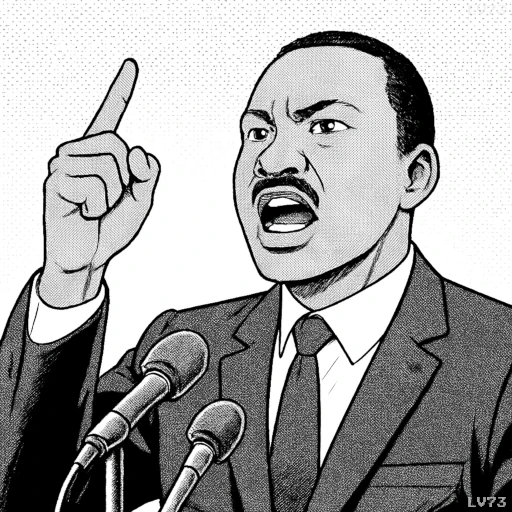“War is a poor chisel to carve out tomorrow.”

- January 15, 1929 – April 4, 1968
- African American
- Pastor and civil rights leader
table of contents
Quote
“War is a poor chisel to carve out tomorrow.”
Explanation
This quote underscores King’s belief that violence and conflict cannot shape a positive future. He likens war to a blunt tool, unable to precisely or effectively carve out a future of peace, justice, or progress. Instead, King advocated for nonviolent methods to bring about change, as he believed that violence only deepens divisions and leads to more suffering.
Historically, King was a staunch advocate of nonviolent resistance, inspired by figures like Mahatma Gandhi. He saw that true progress, especially in the fight for civil rights, could not be achieved through aggression but through understanding, dialogue, and compassion. This philosophy is still relevant today, as conflicts around the world often leave lasting scars on societies, harming innocent lives and destabilizing communities.
In today’s world, King’s words remind us that using violence to resolve disputes, whether on a large or small scale, sacrifices the chance for true reconciliation and growth. Instead, finding peaceful, diplomatic, and collaborative solutions can help create a future rooted in mutual respect and stability. For instance, addressing social issues through community engagement and peaceful protest often leads to more sustainable and inclusive progress than forceful measures, which rarely resolve underlying issues.
Would you like to share your impressions or related stories about this quote in the comments section?


